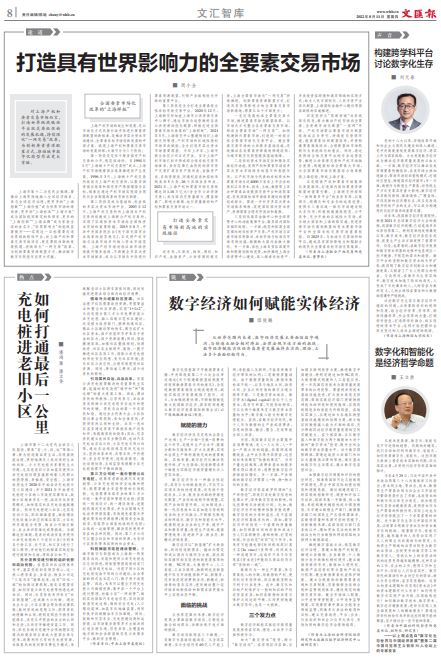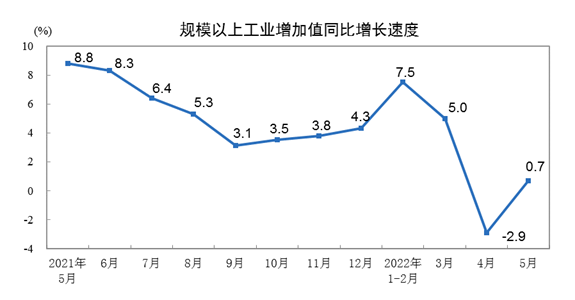Di Junpeng | How can the digital economy empower the real economy
Author:Report Time:2022.08.12
From the world's perspective, the development of the digital economy is mainly facing the challenges of digital gaps, relatively lagging behind in the manufacturing industry, and legal discomfort. The high -quality development of the digital economy to empower the real economy is urgent to actively act in practice, theory, and legislation.
Digital transformation cannot be separated from data factor support. The 26th meeting of the Central Reform Commission reviews and approves the "Opinions on the Establishment of Data Elements to better play the role of data elements". Economic development provides guidelines. Recently, in order to strengthen overall coordination and continue to be stronger and superior to our digital economy, the State Council agreed to establish a system of joint conferences (hereinafter referred to as joint conferences) of the Ministry of Digital Economic Development.
Potential
The digital economy involves the process of Max Society's reproduction process: production-distribution-exchange-consumption. It is an important carrier for improving the level of productivity, improving allocation and exchange efficiency, expanding overall consumption, and achieving the smooth and efficient completion of social reproduction. Specifically, the digital economy has injected solid momentum into the high -quality growth of the real economy from promoting transformation and upgrading, expanding the overall supply, and creating new demand for the real economy.
As a fusion economy, the digital economy has a huge empowerment effect, which can not only achieve its own rapid development, but also help the optimization and allocation of resources within the industry, industry, and service industry in traditional agriculture, industry, and service. Transformation and upgrading. For example, manufacturing, a new generation of information technology is accelerating the comprehensive integration of traditional manufacturing, continuously strengthening the level of networking, digitalization and intelligence of the manufacturing industry, improving the productivity of manufacturing enterprises, improving the quality of products and services, and improving the production process. Improve management efficiency and promote the sustainable development of new industries, new formats, and new models.
The digital economy expands new supply with "new infrastructure" while creating new demand. Leveraging domestic demand is the key to form a new development pattern of developing a large -scale domestic cycle as the main body and the domestic and international dual cycles. New infrastructure such as 5G networks, big data centers, artificial intelligence, industrial Internet, and the Internet of Things not only provides new products and services for the market, but also effectively promotes the popularization of new consumer formats, new models, and new scenarios, and then promotes the entire economic system. New supply and new demands achieve dynamic balance at a higher level.
Challenge
From the world's perspective, the development of the digital economy is mainly facing the challenges of digital gaps, relatively lagging behind in the manufacturing industry, and legal discomfort.
Digital gaps are reflected in three dimensions, one is the digital infrastructure gap. From a global perspective, there are still 4 billion people worldwide unable to access the Internet, failed to access the Internet, and cannot enjoy the dividends brought by the digital economy; the second is the data quality gap. Due to the low quality of data and the uniform data collection standards, the effective digital interconnection rate between regions, between government, and enterprises is not high. The third is the digital capital gap. Digital Capital (Digital Capital) is similar to human capital and has the characteristics of accumulaable and investables. It can define the level of digital capital stock from two dimensions: digital access capacity and digital processing capacity. Obviously, in the digital economy era, as a producer or consumer of data, the ability to obtain, output, integration, communication, etc. varies from person to person.
At present, my country's digital economy is mainly concentrated in the consumer field. It is a link between people-people, people-platforms-industry-industry, and rely on network scale benefits, de-platformization and other means. "Fruit of hanging". When the number of users reaches the bottleneck and the basic service needs of consumers can meet, the consumer digital economy will face low growth. On the other hand, the digital economy in the industry needs the interconnection between people-things, things-things.
The digital economy has the so -called "productivity paradox" of Solo, that is, we are surrounded by digital information, which is deeply affected by digital information, and these effects cannot be counted. For example, the psychiatric service -oriented consumption and the sharing and overflow of digital information in the digital economy are not within the national economic accounting system. For another example, the time of the digital economy is an important consideration dimension. How to calculate the value and cost of time? When people swipe WeChat, watch short videos, and rewards, they pay the currency of "time". In the future, it may be like the movie "Time Planning Bureau" (English name "In Time"). Currency, this may be mentioned in Marx's "Capital" that the "thrilling jump" from goods to currency.
As a production factor, data is allocated to the distribution of factor income, and the property rights and rights of data need to be clarified, and the data monopoly is not conducive to industry competition. In addition, there is still a difference between the property rights protection of digital knowledge and the property rights of general knowledge. How to achieve a balance between the sharing and protection of data, so as to better establish digital trust is also a big challenge.
Three Power Points
The high -quality development of the digital economy to empower the real economy is urgent to actively act in practice, theory, and legislation.
Increase the "digital capital" investment and reduce the "digital gap". At the macroeconomic level, Internet investment should be strengthened and the construction of digital China should be promoted. In particular, by accelerating the construction of 5G commercial, big data models, and artificial intelligence applications, further consolidating the advantages of dividends brought by information technology for high -quality development. It is necessary to attach importance to the investment of shared technology infrastructure, expand the scope of support for technological transformation, help the real economy sector break through the research and development and use of the Internet of Things technology, and realize the intelligent upgrade and transformation of traditional manufacturing. At the regional level, by increasing the coordination of new infrastructure construction in various regions, reducing the gap in data access capacity between regions, and fully release its ability to contribute to the high -quality economic development of the economy. At the individual level, the "digital capital" investment of individuals should be increased from the dimensions of digital access and digital capabilities to increase the level of digital capital stock in the whole society. For digital vulnerable groups, it is necessary to provide necessary assistance through government public sector and community forces, meet basic digital life needs, and establish a digital tolerance society. Strengthen theoretical research on digital economic measurement and evaluation. Explore the theoretical framework and measuring ideas that can be comparable to Chinese characteristics and in line with China's actual situation. It is recommended to build an index research, survey and evaluation work organization of cross -sector and cross -level, track and collect first -hand data and core data, systematically build key index statistical survey frameworks, and establish a national product accounting system for data production departments and data service departments as soon as possible. Under the premise of controlling the quality and source of data, innovative data sources, in addition to the national statistics department's various lines, add more flexible industry data and Internet big data channels that reflect the vitality of the market.
Promote digital basic legislation and standardize digital economic governance. It is necessary to establish a data property rights system, promote the authorization of public data, corporate data, and personal data classification and classification, establish data resource holdings, data processing and use rights, data product management rights, etc. Protection system. Establish a compliance and efficient data element circulation and trading system, improve the compliance and regulatory rules system of the entire process of data, and build a standardized data trading market. Improve the market access system, fair competition review system, and a fair competition supervision system, realize the supervision of the entire chain and after -the -chain of the aftermath, clarify the pattern and goals of diversified co -governance, and establish and improve the diversified Participate and effectively coordinate the new pattern of digital economic governance.
(The author is an associate researcher at the Big Data and Digital Economic Research Center of the Institute of Economics of the Institute of Economics of Shanghai)

Author: Di Junpeng
Edit: Chen Yu
Editor -in -chief: Yang Yiqi
- END -
Industrial production has fallen from a decrease to increase and urban survey unemployment rates.

The latest data of the national economy in May revealed that the Chinese economy h...
The first theme Forum of the 20th China International Talent Exchange Conference "Science and Technology Innovation Support the Rural Revitalization and Development Forum" activity week

On June 22, 2022, the 20th China International Talent Exchange Conference, hosted ...